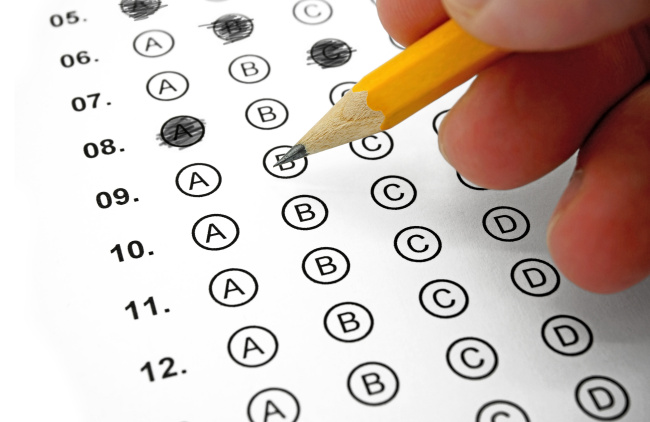As 600,000 Korean high school seniors took the annual college entrance exam on Thursday November 17th, the stark differences between Korean students and international students was quite apparent. The critical test, that most likely affects not only academic careers but also future professions, was administered in over 1,100 testing sites across the country. Government imposed traffic and noise control during the testing hours signifies the importance of this exam, which is only given once a year. The measures to combat cheating are so strict that no one dares to cut corners.

This comes in stark contrast to the American college entrance exams, the SAT and ACT, that are administered in Korea. Attempted cheating on the exams has become so rampant that the American testing services have taken extraordinary precautions only applicable to Korea. The administrators of the ACT announced just this month that the test scheduled for December 10th will be moved to one designated test center instead of the usual 26 locations across Korea, which is unheard of in any other country because of the burden it will place on students from all over the country to take the test from one location. These tough measures were are being carried out after the ACT was cancelled in June due to leaked test questions and all essay test scores were cancelled from the test on October 22nd due to possible leaks. This is in addition to the entire SAT test being cancelled in May of 2013 and some Korean test takers being blacklisted from future examinations.
So what exactly is going on here? Are Korean students more honest than their international school counterparts? Are international students or even their parents prone to cheating?
To find out, I interviewed the manager of a educational institute or hagwon in Daechi- dong, Seoul who has experienced students from both realms.

Q. What are the reasons behind the rampant cheating on the U.S. College entrance exams?
A. Well, I think there are several factors in play. First, the tests are administered worldwide on the same day. That means that some students are taking the tests several hours before other students because of the time zone differences. This allows for cheating because the questions are known in one country before the test is given in other countries. This allows hagwons to try to bribe students in other countries for the test questions. Second, some parents are aware that certain hagwons are able to get the questions beforehand and purposely send their children to these hagwons. They are willing to pay a lot of money for this privileged information. Then once the hagwons get used to making that kind of money, they want to continue making a lot of money and use whatever means possible to get the answers beforehand. Finally, if you give a people a chance to cheat, they most likely will cheat. The Korean college entrance exam is given just once a year on the same day and time for all students, so this takes away the possibility to get the questions beforehand.
Q. What can be done to curb cheating on these tests?
A. I don't think there is a 100% guaranteed way to stop cheating but the test services are taking drastic measures such as the one test center for the ACT in December. This is a significant burden for students that live on the other side of the country. The hagwons that are paying for these questions need to be prosecuted with stiff penalties and have their licenses taken away. Also, more importantly, parents shouldn't tolerate this kind of behavior. If a student is not qualified for a certain university, her or she should not attend that university. By cheating on the exam and sending your child to a university that doesn't match the student's capability can have drastic consequences.
As the ACT draws near, I hope students realize that cheating is not the way to get to the top and it hurts those who prepare honestly for the exam. Also, this stain on Korea's image will not wash away easily.

Janie Lee
Grade 11
Seoul International School

